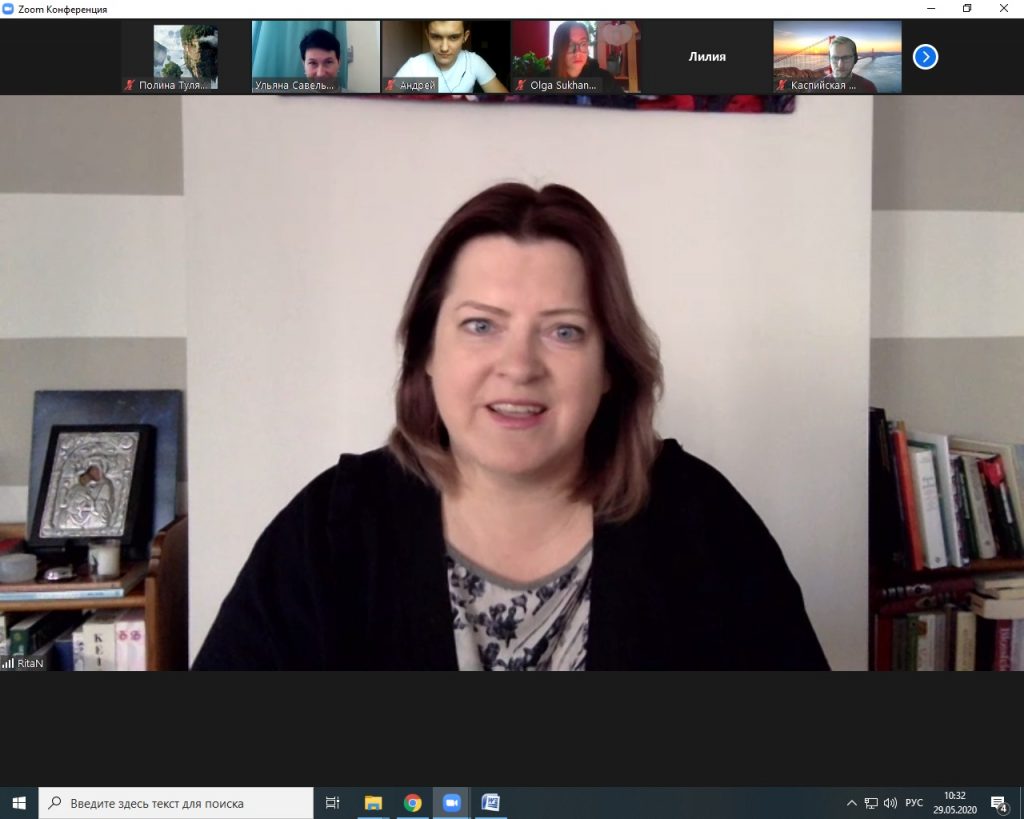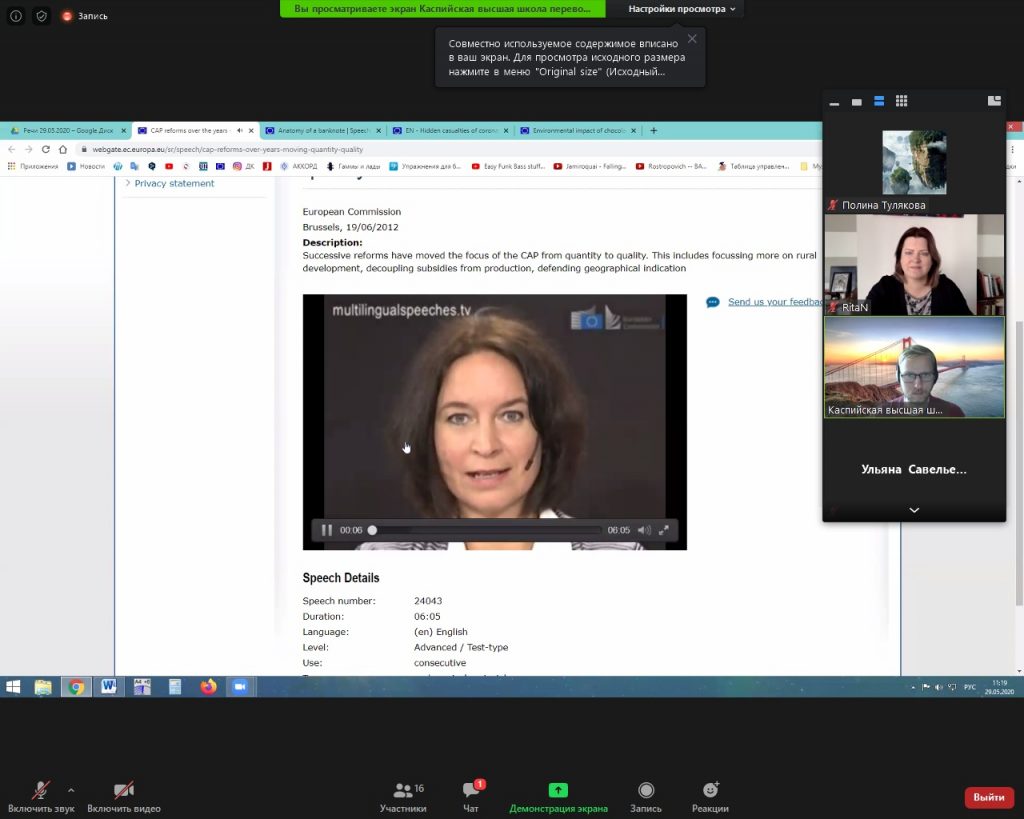CITS MA Students Took Part in a Workshop by the Interpreter of the Latvian Booth of the Directorate-General for Interpretation of the European Commission
Rita Nikolajeva, an interpreter of the Latvian booth of the Directorate-General for Interpretation of the European Commission gave an online workshop for the trainers and second-year MA students of the Caspian Higher School of Interpreting and Translation.
Rita Nikolajeva is the only working interpreter of the European Commission who has active Russian. In the introduction to the seminar, Rita drew students’ attention to the demand for the conference interpreter professionand told that the European Commission tends to invite local interpreters to work at itinerant sessions and audits. In addition, Rita participates in the exams of the European Commission not only passively (she reads out speeches in Russian), but also actively by evaluating candidates for temporary positions.
“I work with the German language. The German booth has very strict criteria concerning interpretation. The Germans are always told: “You are finding fault with it, the interpretation was rather good.” I often deal with the Russian booth and Russian-speaking delegates. They have a completely different approach compared to the Europeans. Those delegates who often come to the meetings got accustomed to work with interpreters. The Russian-speaking delegates are rather demanding and don’t hesitate to say so. As for the English booth, the style of the material they submit has changed a lot. Formerly, the British would come and give a speech at a good pace in their own dialect. But if you worked with “SpeechRepository”, you could see speeches given at a slow, measured pace and based on the methodology”.
The interpreter has also told how the coronavirus pandemic influenced the requirements for interpreters.
“The virus has upset our routine, as well. All our meetings, which now are very few, take place remotely. The requirements are changing. For instance, much more attention is paid to how pleasant to the ear interpretation is. Everyone has suddenly realized that it is difficult to listen to interpretation for 4-5 hours. Currently, more focus is put on the voice, manner of speaking;we evaluate how natural the interpretation given by the candidate is. Previously, the focus was on the content, the voice took second place”.
In the course of four hours of today’s class, the interpreter spoke about the European Commission’s requirements for the interpretation, the exam’s requirements as well as pointed out that every organization, for instance, NATO, UN or any other employer has different standards for interpretation and interpreter. During the workshop, the students studied the speeches close to those from the exam. The feedback from Rita Nikolajeva proved to be particularly valuable. She was able to draw MA students’ attention to the details that need to be improved and kept in mind. According to Rita Nikolajeva, when considering a candidate for an interpreter position, experts are guided by the following questions:
“Can I take this interpreter to my booth? Am I ready to work with him/her together? It’s one thing to pass an exam in sheltered education environment. But then you find yourself in a real booth with a stack of papers with printed text which speaker reads out at a non-stop pace and you must handle it”.







